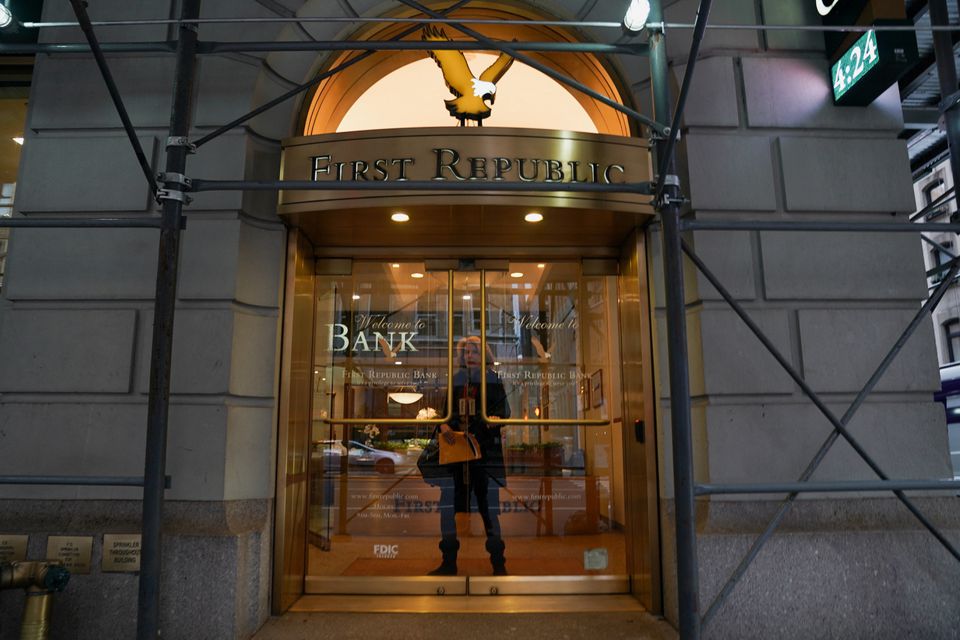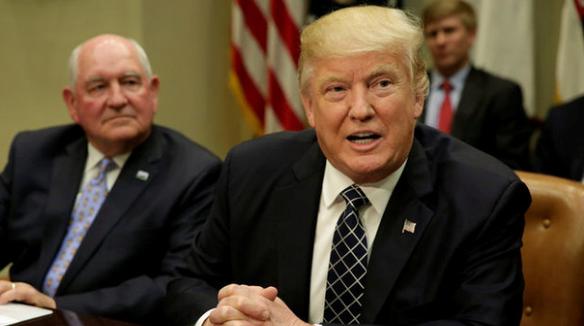
March 17 (Reuters) - A $30 billion lifeline for First Republic Bank (FRC.N) hosed down market fears about an imminent banking collapse on Friday, but a late tumble in the troubled U.S. lender's shares showed investors were still worried about cracks in the sector.
Large U.S. banks injected the funds into San Francisco-based bank on Thursday, swooping in to rescue the lender caught up in a widening crisis triggered by the collapse of two other mid-size U.S. lenders over the past week.
The deal was put together by top power brokers including U.S. Treasury Secretary Janet Yellen, Federal Reserve Chairman Jerome Powell and JPMorgan Chase CEO Jamie Dimon, who had discussed the package this week, according to a source familiar with the situation.
The package came less than a day after Swiss bank Credit Suisse (CSGN.S) clinched an emergency central bank loan of up to $54 billion to shore up its liquidity.
Those deals helped restore calm to global markets on Thursday and Friday, following a torrid week for banking stocks.
However, while First Republic's stock closed up 10% on news of the rescue, its shares fell 18% in after-market trading after the bank said it would suspend its dividend and disclosed its cash position and just how much emergency liquidity it needed.
Analysts says authorities appear eager to quickly deal with systemic risks, but worry the potential for a banking crisis is far from over.
"They will keep the money in First Republic to keep it alive for self interest ... to stop the run on banks. Then they will take it away gradually and the bank will play out a slow death," said Mathan Somasundaram, founder at research firm Deep Data Analytics in Sydney.
"Yellen was clear overnight that all bank deposits were protected, but the bank might not be there," he said.
Some of the biggest U.S. banking names including JPMorgan Chase & Co (JPM.N), Citigroup Inc (C.N), Bank of America Corp (BAC.N), Wells Fargo & Co (WFC.N), Goldman Sachs (GS.N) and Morgan Stanley (MS.N) were involved in the rescue, according to a statement from the banks.
While the support has prevented an imminent collapse, investors were startled by late disclosures about First Republic's cash position, even after the injection, and just how much it and others leaned on the Fed this month for support.
Data on Thursday showed banks in the United States sought record amounts of emergency liquidity from the Fed in recent days, driving up the size of the central bank's balance sheet after months of contraction.
More broadly, worries about contagion risks persist.
"I don't think we are in the crux of a global financial crisis. Balance sheets are much better than they were in 2008, banks are better regulated," said Karen Jorritsma, head of Australian equities, RBC Capital Markets. "But people are concerned that the contagion risk is real, and that rattles confidence."
For now, authorities are confident the banking system is resilient and have tried to emphasise that the current turmoil is different to the global financial crisis 15 years ago as banks are better capitalised and funds more easily available.
On Thursday, the European Central Bank pressed forward with a 50-basis-point rate hike, arguing that euro zone banks were in good shape and that if anything, the move to higher rates should bolster their margins.
Focus now swings to the Fed's policy decision next week and whether it will stick with its aggressive interest rate hikes as it seeks to get inflation under control.
In Asia, Singapore, Australia and New Zealand said they were monitoring financial markets but were confident their local banks were well capitalised and able to withstand major shocks.
Japan's finance ministry, financial regulator and central bank said they would meet on Friday to discuss financial market developments.
Banking stocks globally have been battered since Silicon Valley Bank collapsed last week due to bond-related losses that piled up when interest rates surged last year, raising questions about what else might be lurking in the wider banking system.
Within days, the market turmoil had ensnared Credit Suisse, forcing it to borrow from Switzerland's central bank.
By Thursday, the spotlight whipsawed back to the United States as big banks shored up support for First Republic, a regional lender. Its shares have dropped more than 70% since March 6.

On the local time of September 29, U.S. President Trump once again unveiled a heavyweight tariff plan on social media: imposing a 100% tariff on all films produced outside the United States, while levying high tariffs on countries whose furniture is "not manufactured in the United States".
On the local time of September 29, U.S. President Trump onc…
On September 22, 2025, in the Sheikh Radwan neighborhood of…
When the container ship "Istanbul Bridge" departed from Zho…
Recently, UK Chancellor of the Exchequer Rachel Reeves deli…
On September 29th local time, the spot gold price continued…
In September 2025, the Trump administration, under the pret…